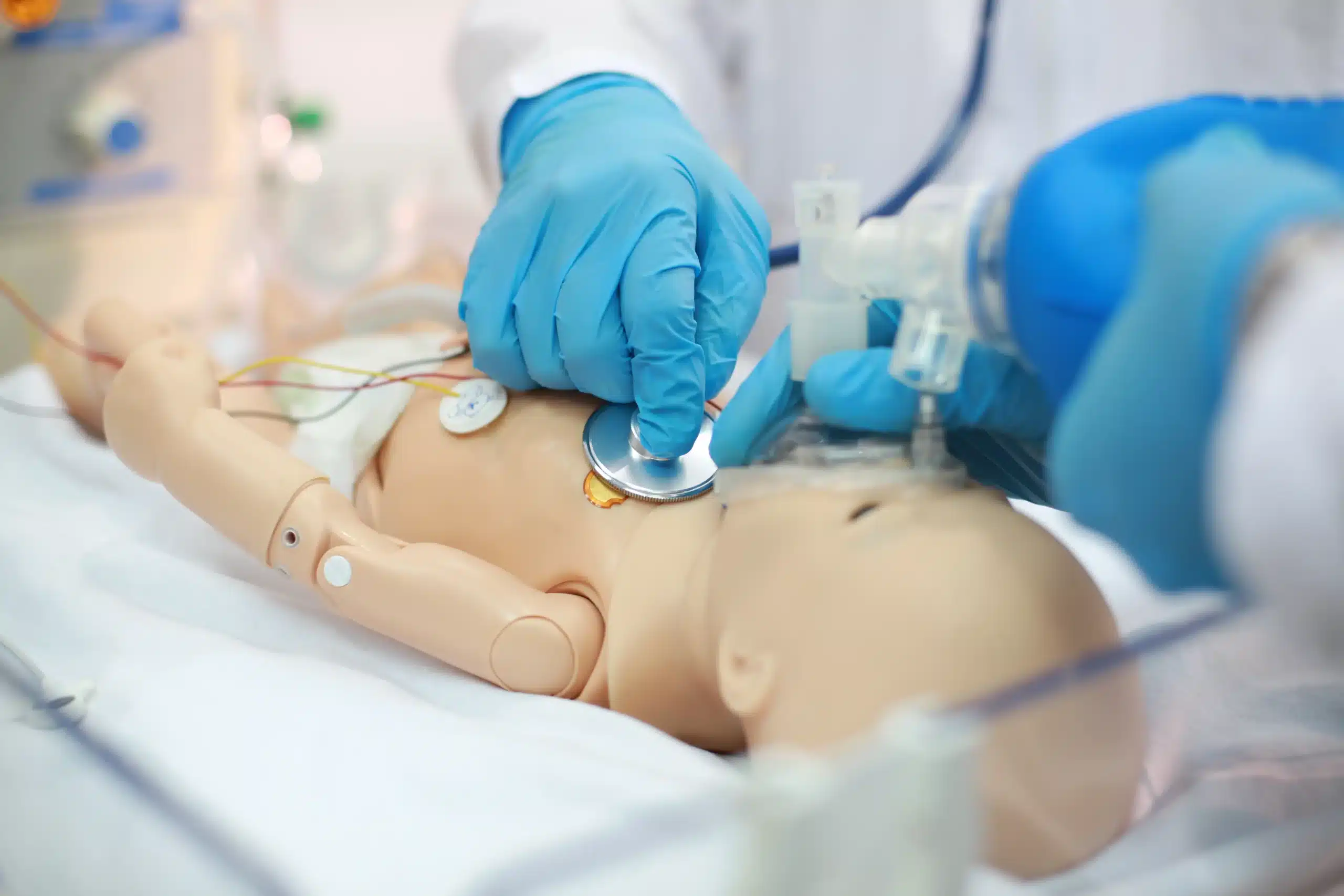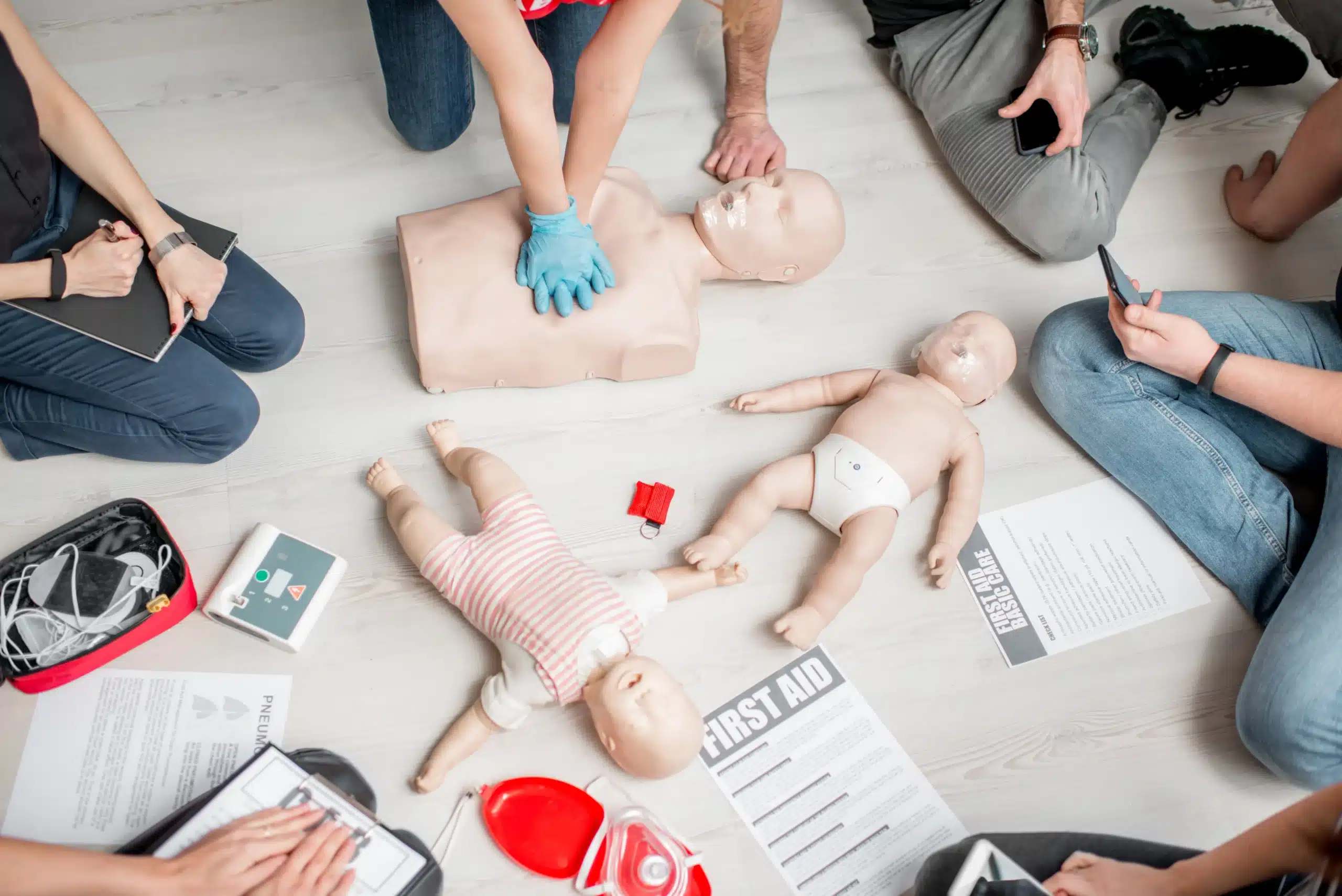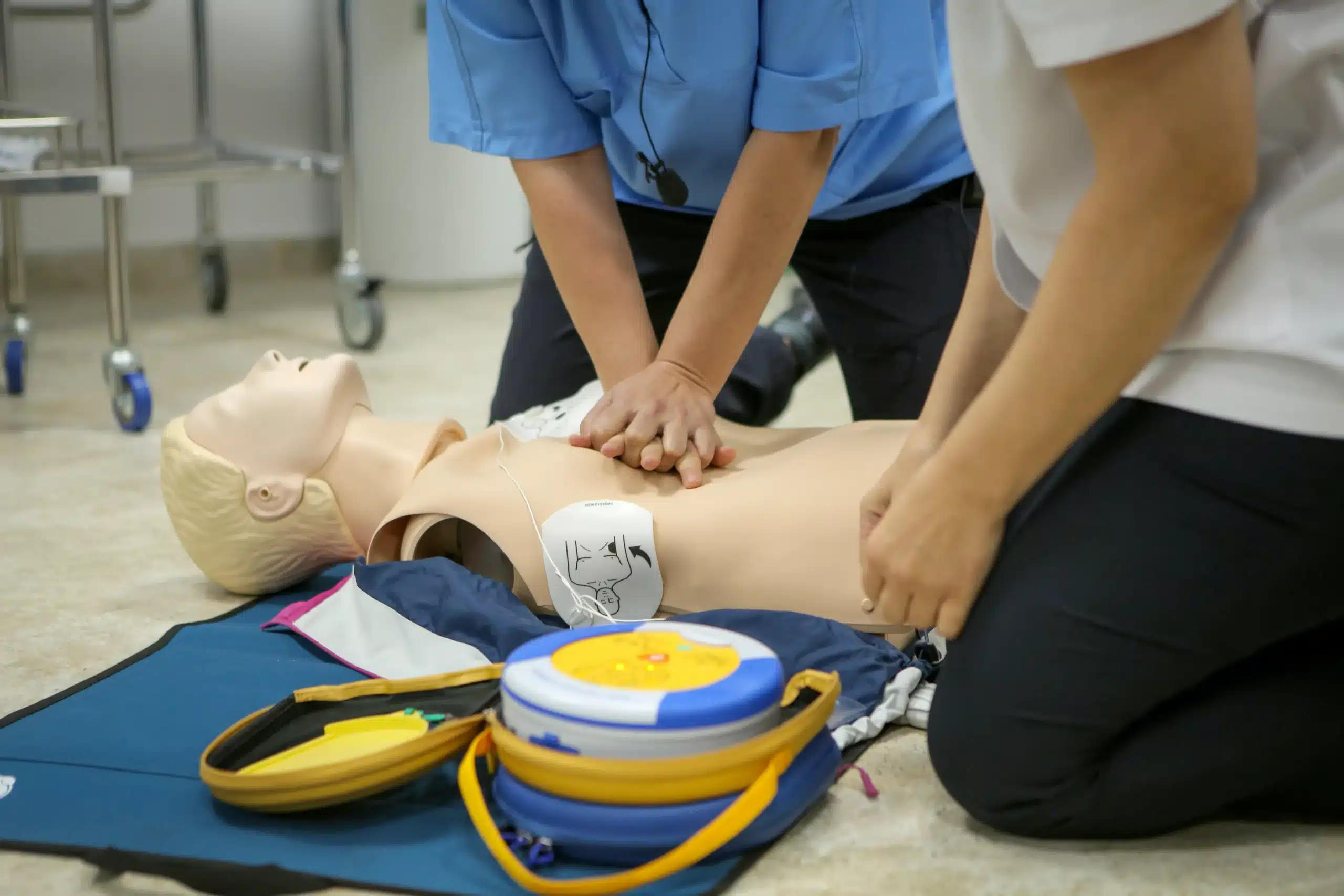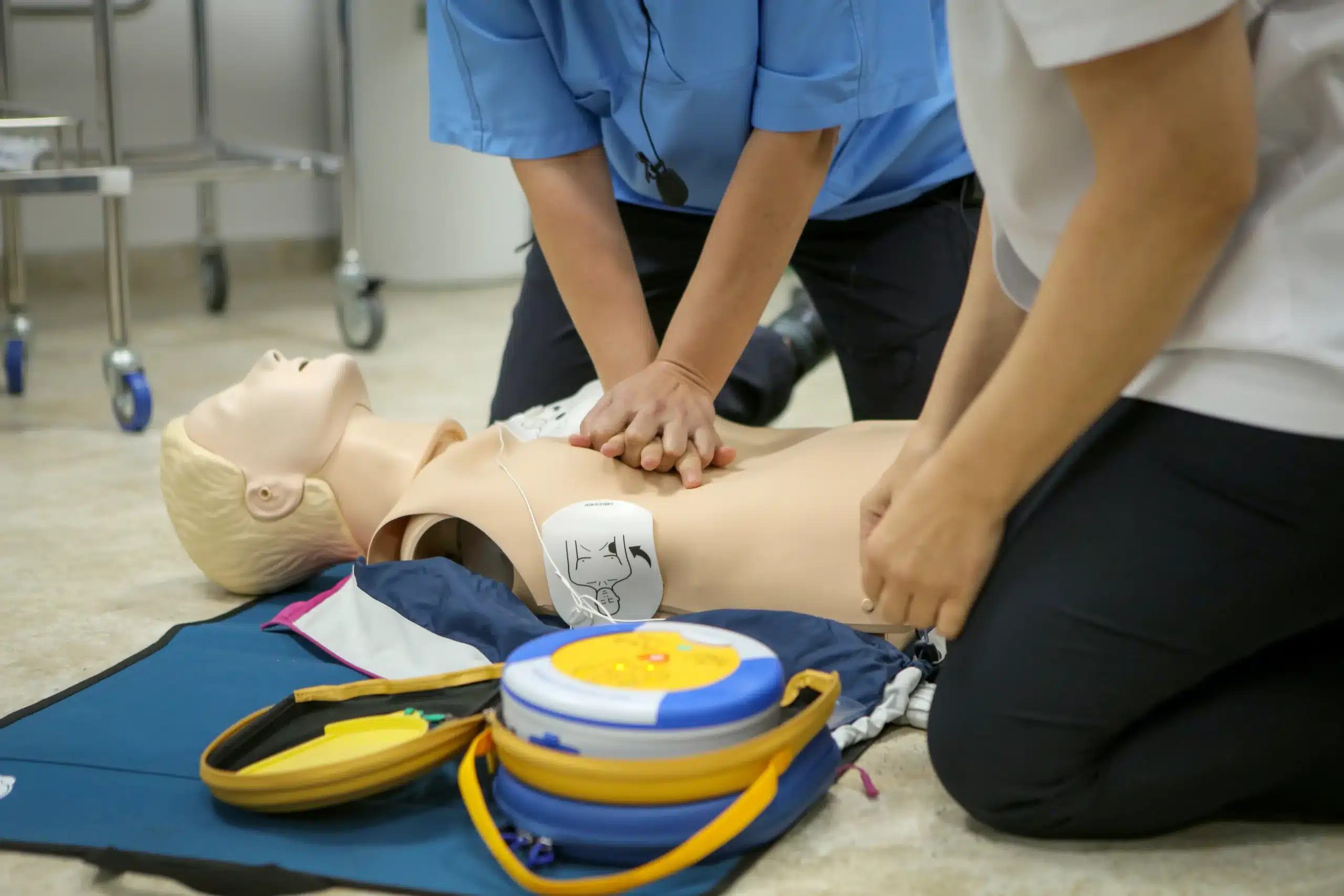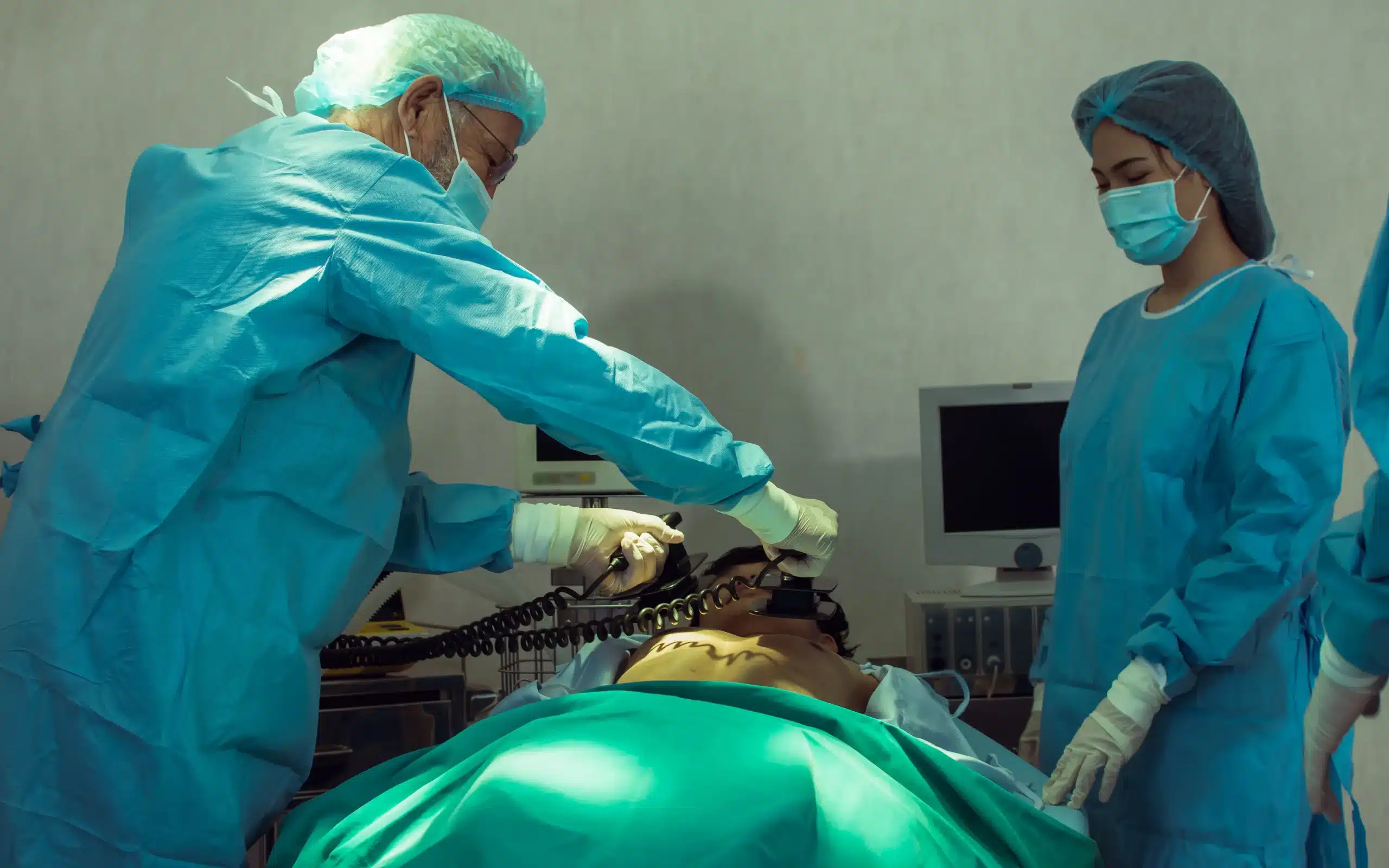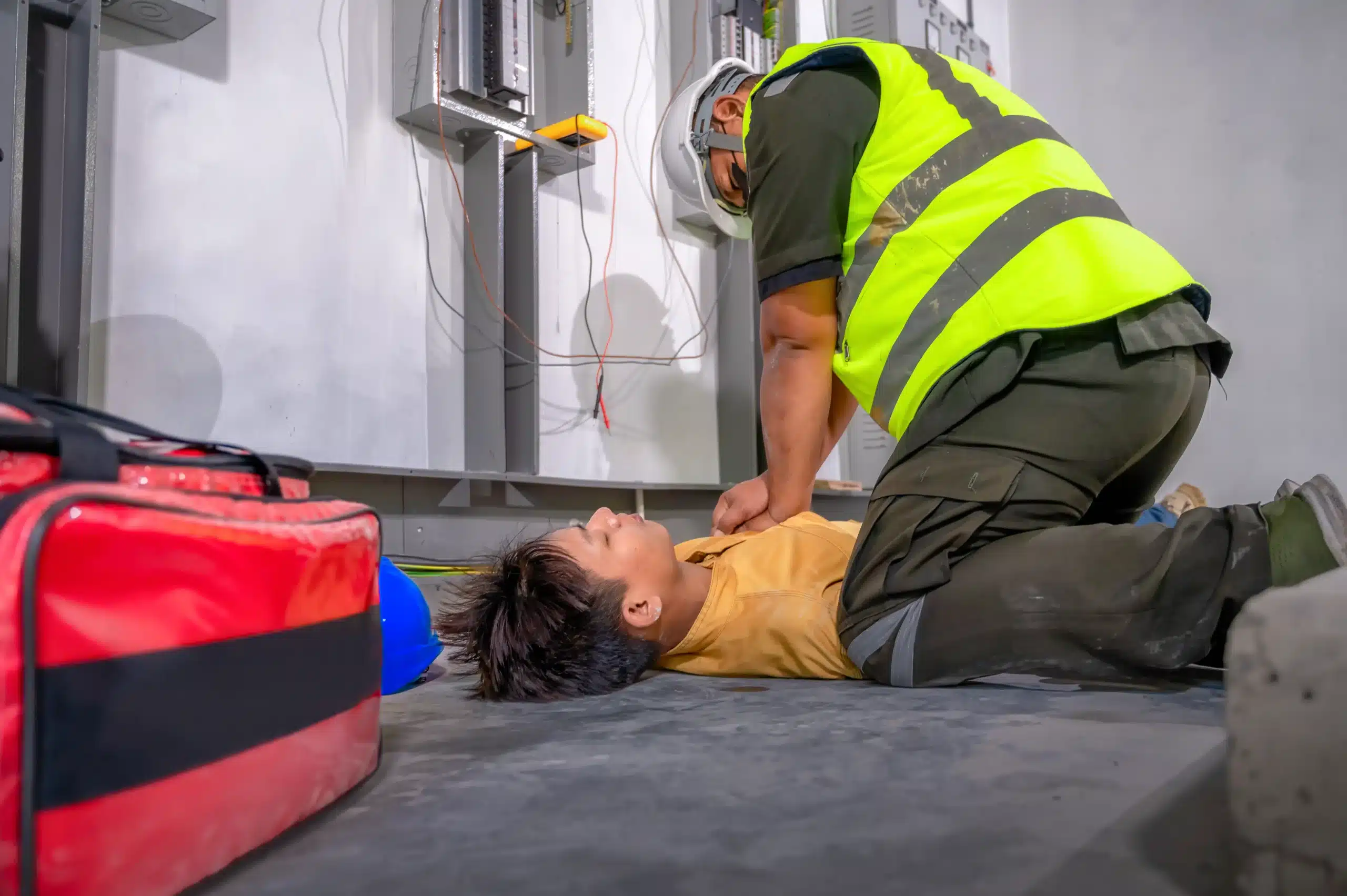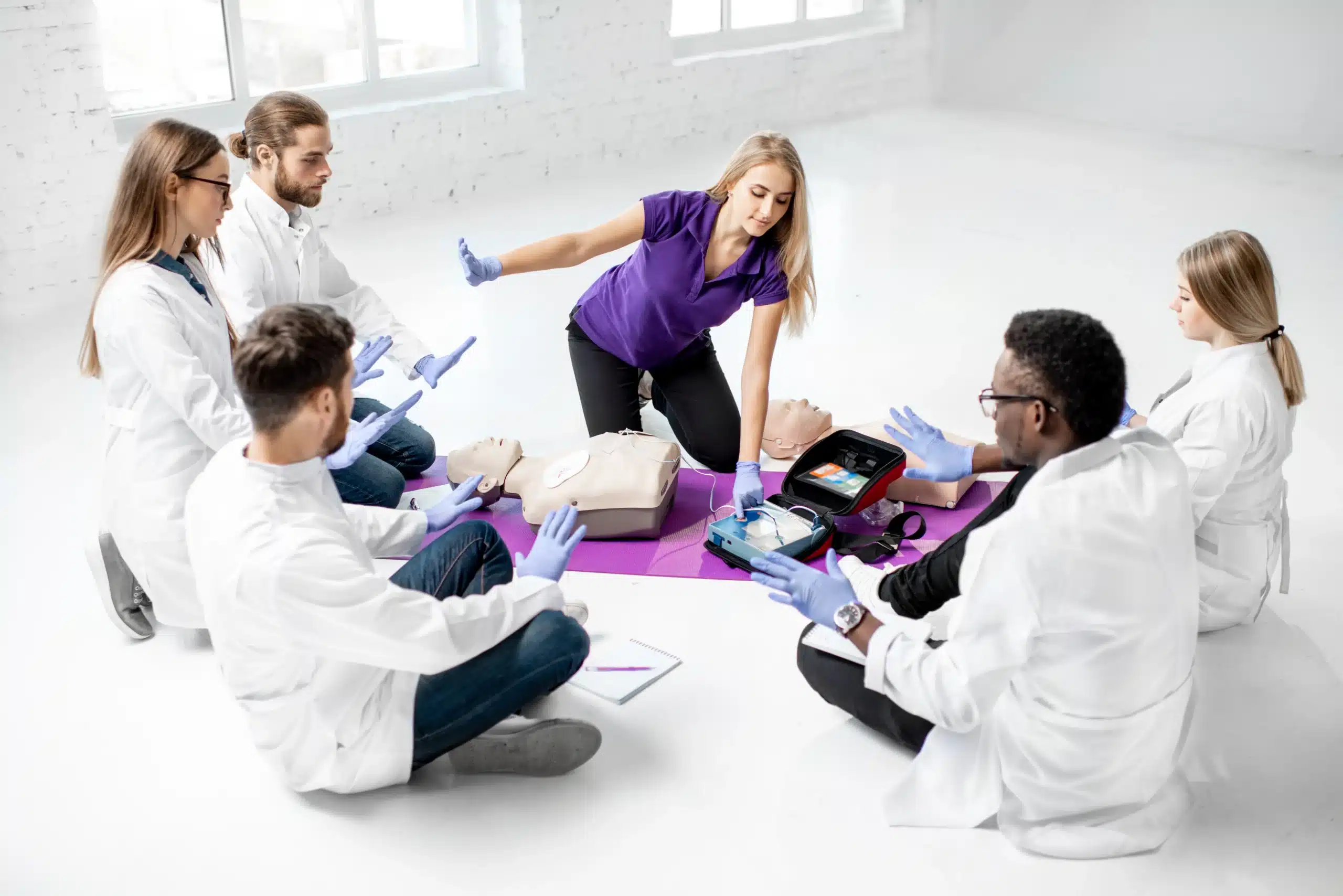Living in a coastal community like Capitola means enjoying beautiful beaches, vibrant local businesses, and a strong sense of community. But it also means being prepared for anything, from minor injuries to more serious emergencies. Knowing how to respond effectively in a crisis can make all the difference. That’s where CPR certification in Capitola comes in. This training empowers you with the skills and confidence to act quickly and potentially save a life. Whether you’re a healthcare professional, a parent, a teacher, or simply someone who wants to be prepared, CPR certification is a valuable asset. This guide explores everything you need to know about CPR certification in Capitola, from the different courses available to where to find training and what to expect during the process.
Key Takeaways
- Find the right CPR class for you: Capitola offers various CPR certification levels, from basic to advanced, with options for healthcare providers and the general public. Choose a course that fits your needs and learning style.
- Compare training options: Consider factors like course content, instructor credentials, and cost when selecting a CPR training provider in Capitola. Check with Safety Training Seminars and other local providers for the best fit.
- Stay current with your certification: Renew your CPR certification every two years and keep your skills sharp with refresher courses. Ensure you’re always prepared to respond effectively in an emergency.
What is CPR Certification in Capitola?
CPR certification in Capitola equips you with the skills to perform cardiopulmonary resuscitation (CPR). These certifications, often granted by organizations like the American Heart Association (AHA) and the American Red Cross, come in different levels to meet various needs. These range from Basic Life Support (BLS) for healthcare providers and other professionals to CPR and first aid training for the general public.
Finding a course that fits your schedule and learning style is easy, with options ranging from in-person classes to online learning and blended approaches. Safety Training Seminars offers a variety of AHA-certified CPR and first aid courses right here in Santa Cruz. These courses cover the core techniques of CPR, essential first aid practices, and how to respond effectively in an emergency. The Red Cross also offers CPR classes in nearby Santa Cruz, easily accessible for Capitola residents. Whether you’re a healthcare professional or simply want to be prepared, getting CPR certified is a valuable step. It empowers you with life-saving skills and contributes to a safer community.
CPR Certification Courses Available
Choosing the right CPR certification course depends on your background and goals. Here’s a breakdown of common CPR certifications available in Capitola:
Basic Life Support (BLS)
Basic Life Support (BLS) certification focuses on the skills needed to recognize and respond to life-threatening emergencies, including cardiac arrest and respiratory distress. It covers single-rescuer and team-based CPR for adults, children, and infants, along with other critical skills like using an AED and relieving choking. This BLS certification is essential for healthcare providers, first responders, and anyone working in a healthcare setting.
Advanced Cardiovascular Life Support (ACLS)
Advanced Cardiovascular Life Support (ACLS) certification builds upon the foundation of BLS. This advanced course provides healthcare professionals with the knowledge and skills to manage cardiac arrest and other cardiovascular emergencies. ACLS training covers topics like airway management, pharmacology, and effective team dynamics during resuscitation.
Pediatric Advanced Life Support (PALS)
Pediatric Advanced Life Support (PALS) certification is designed for healthcare providers who respond to emergencies in infants and children. This course emphasizes the importance of early recognition and intervention in pediatric emergencies. PALS certification covers topics such as respiratory distress, shock, and post-resuscitation care.
Standard CPR for Non-Healthcare Providers
Standard CPR courses are tailored for individuals outside of the healthcare field, teaching essential lifesaving skills. These courses empower anyone to respond effectively during emergencies. This training covers adult, child, and infant CPR, AED use, and how to respond to choking. It’s a valuable skill for parents, teachers, coaches, and anyone who wants to be prepared to help in a crisis. Contact us to learn more about CPR courses and find the right fit for you.
Choose the Right CPR Certification Course
Picking the right CPR certification course is the first step. Think about your specific needs and what you want to achieve with your certification. This section breaks down the key factors to consider.
Assess Your Needs: Healthcare Professional vs. General Public
Are you a healthcare provider, or are you seeking certification for personal enrichment or a non-medical job? CPR and BLS certification is essential for healthcare professionals like doctors, nurses, and EMTs. These certifications are often a job requirement and cover more comprehensive life-saving techniques. If you’re after certification for personal knowledge or a job outside healthcare (like a childcare provider, teacher, or coach), a standard CPR and First Aid course might be all you need. Consider your current role and future goals when making your decision. Safety Training Seminars offers courses for both healthcare providers and the general public.
Course Content and Duration
Different CPR courses cover different material. Basic Life Support (BLS) teaches single-rescuer CPR and how to use an AED. Advanced Cardiovascular Life Support (ACLS) goes further, covering team dynamics and advanced airway management. Pediatric Advanced Life Support (PALS) focuses on the specific needs of infants and children. Course duration also varies. A standard CPR course might take a few hours, while more advanced certifications like ACLS or PALS require more time. Check the course descriptions to see what each course entails and how long it takes.
Certification Validity and Renewal
CPR certifications typically expire after two years. Factor in renewal requirements when choosing a course. Make sure you understand the renewal process and associated costs. Planning ahead will help you maintain your certification and keep your skills sharp. Check with your employer or licensing board for specific renewal requirements in your field.
Instructor Credentials and Training Format
Look for courses taught by certified instructors with experience in the field. Safety Training Seminars uses American Heart Association (AHA) certified instructors, ensuring you receive high-quality training. Consider your learning style, too. Do you prefer in-person, hands-on instruction, or would a blended learning approach with online components work better? Safety Training Seminars offers various training formats to suit different preferences. They are also licensed by EMSA, giving their training programs an extra layer of credibility.
CPR Certification Costs in Capitola
CPR certification costs in Capitola, California, vary depending on the course, the training provider, and whether you qualify for group discounts. Understanding these factors helps you budget accurately for your training.
Price Ranges for Different Courses
Different CPR courses cater to various needs and levels of expertise, influencing their pricing. Basic Life Support (BLS certification) classes typically cost less than more advanced courses like Advanced Cardiovascular Life Support (ACLS certification) or Pediatric Advanced Life Support (PALS certification). Check with providers like Safety Training Seminars for specific pricing on their websites.
Group Discounts and Promotions
If you need to certify a group, like workplace staff or a community organization, ask about group discounts. Many training centers, including those offering CPR classes in Capitola, offer reduced rates for group bookings. Watch for seasonal promotions or special offers that can also lower the cost. Safety Training Seminars often has a low price guarantee, so check their website or contact them.
Compare Costs Among Providers
Before choosing a provider, compare costs and what’s included in the course fee. Some include the certification card, study materials, or other resources in their pricing, while others charge separately. Contact different CPR training centers to discuss your needs and clarify pricing to ensure you’re getting the best value for your CPR training investment.
Find CPR Certification Classes in Capitola
Finding the right CPR certification class in Capitola depends on a few factors: the type of certification you need, your schedule, and your budget. Here are a few options to get you started:
Safety Training Seminars
Safety Training Seminars offers a variety of American Heart Association (AHA) certified courses, including CPR, BLS, ACLS, PALS, and First Aid. Conveniently located near Capitola at 1515 Capitola Road, Unit G, Santa Cruz, they offer extended hours from 8 am to 10 pm daily, making it easier to fit training into your schedule. All courses are AHA-certified, so you’ll receive a nationally recognized credential, with certification cards valid for two years. Visit their website for course schedules and information on their low price guarantee. You can also contact them directly with any questions.
Bay Area CPR
Bay Area CPR provides AHA-certified CPR, BLS, ACLS, and PALS courses, in addition to first aid and EMSA Health, Safety & Nutrition courses designed for childcare providers. With classes offered daily (except Christmas and New Year’s) at 45 locations throughout Northern California, including Capitola, they offer plenty of flexibility. Bay Area CPR also has a low-price guarantee and offers group discounts. Check their website for details on Capitola class schedules and pricing.
Local Community Centers and Medical Facilities
Besides dedicated CPR training organizations, it’s worth checking with local community centers and medical facilities. Places like Dignity Health Medical Group, Dominican Hospital, and Sutter Maternity & Surgery Center of Santa Cruz sometimes offer CPR certification classes. These can be great options for Capitola residents looking for training closer to home. Contact these facilities directly to ask about upcoming courses.
Get CPR Certified: The Process
Getting CPR certified is straightforward, designed to equip you with the skills and knowledge to respond effectively in emergencies. Here’s what you can expect:
Classroom Instruction and Hands-On Practice
Most CPR certification courses blend classroom learning with hands-on practice. This approach ensures you grasp the underlying principles and develop the muscle memory needed to perform CPR effectively. Instructors typically cover topics like recognizing the signs of a cardiac arrest, delivering chest compressions, and providing rescue breaths. The hands-on portion involves practicing these techniques on mannequins, allowing you to build confidence and proficiency in a safe environment. In-person classes, like those offered by Safety Training Seminars, provide this essential hands-on training, often leading to a two-year certification meeting Occupational Safety and Health Administration (OSHA) standards.
Written and Practical Exams
After the classroom instruction and practice, you’ll demonstrate your knowledge through written and practical exams. The written exam assesses your understanding of CPR principles and procedures, while the practical exam requires you to perform CPR on a mannequin, showcasing your ability to apply what you’ve learned. Successful completion earns you an official American Heart Association (AHA) certification card, valid for two years. You can learn more about AHA certifications for courses like BLS through Safety Training Seminars. Some programs also offer convenient digital certification cards for easy access. Contact Safety Training Seminars to learn more about their specific offerings.
Online Learning Options
While online CPR courses offer flexibility, they sometimes lack the crucial hands-on practice required for certain certifications, including those meeting OSHA standards. If your profession mandates OSHA-compliant certification, choose a course that includes in-person training. Blended learning, combining online modules with in-person skills sessions, can offer a good balance of convenience and practical experience. Explore the various course formats available through Safety Training Seminars to find the best fit.
Benefits of CPR Certification
Getting CPR certified offers several advantages, from essential lifesaving skills to career advancement and personal growth. Let’s explore some key benefits:
Lifesaving Skills for Emergencies
CPR certification equips you with the skills to respond effectively during medical emergencies. Knowing how to perform CPR can significantly impact survival outcomes. These skills are invaluable for healthcare providers, professional rescuers, and anyone who wants to be prepared to help in a crisis. CPR and BLS certification provides the knowledge and skills to recognize and respond to various medical emergencies, giving you the confidence to act quickly when every second counts.
Professional Requirements and Career Advancement
For many healthcare professions, CPR certification is a job requirement. It demonstrates your commitment to patient safety and your ability to handle critical situations. Even outside the healthcare field, CPR certification can enhance your professional qualifications. It shows employers that you’re prepared to handle emergencies and prioritize workplace safety. Whether you’re a teacher, childcare provider, or fitness trainer, CPR certification can make you a more valuable and competitive candidate. It can also open doors to new career opportunities, particularly in healthcare and related fields.
Personal Preparedness and Community Impact
CPR certification empowers you to make a difference in your community. It gives you the confidence to respond to emergencies and potentially save a life before professional medical help arrives. This preparedness not only benefits you but also strengthens your community’s overall safety net. Learning CPR can also increase your awareness of health and safety issues, leading to a more proactive approach to well-being for yourself and those around you. By signing up for a CPR training course, you’ll gain the skills and confidence to act decisively during critical moments.
Maintain Your CPR Certification
CPR skills are like any other—they fade if you don’t use them. Staying current with your CPR certification isn’t just a good idea; it’s often a job requirement for many healthcare and professional positions. Plus, knowing you’re prepared to handle an emergency brings peace of mind.
Renewal Timelines and Continuing Education
CPR certifications are typically valid for two years. To maintain your credentials and ensure you’re ready to respond effectively, plan to renew your certification before it expires. Safety Training Seminars offers convenient refresher courses to help you stay sharp and confident in your abilities. These courses cover the latest guidelines and techniques, giving you the tools and knowledge you need to act quickly and efficiently during a crisis.
Stay Updated on Latest Guidelines
Emergency response protocols and best practices evolve with ongoing research and scientific findings. For example, current American Heart Association (AHA) guidelines emphasize compression-only CPR as the preferred method for many situations. Regularly reviewing these guidelines and participating in CPR training ensures you’re always using the most effective techniques. Safety Training Seminars aligns our courses with the latest AHA recommendations, so you can trust you’re learning the most up-to-date information. Staying informed and practicing your skills regularly are the best ways to be prepared for any emergency.
Common CPR Certification Misconceptions
Address Myths and Encourage Participation
When it comes to CPR certification, a few misconceptions can prevent people from getting trained. Clearing up these myths is key to encouraging more people to take CPR courses and ultimately save lives. Here in Capitola, we want everyone to feel empowered to act in an emergency.
One common myth is that CPR alone can restart a stopped heart. Many believe performing CPR is enough to get someone’s heart beating again. In reality, CPR is a critical bridge that maintains blood flow until paramedics arrive. It’s vital first aid, but not a guaranteed fix. CPR primarily keeps oxygenated blood circulating to the brain and other vital organs, buying precious time. Reeves Training offers a helpful resource on the realities of CPR. Another misconception revolves around the fear of causing harm while performing CPR. Some worry they might injure the person needing help. The truth is, the potential to save a life significantly outweighs the small chance of causing minor injury. The American Heart Association emphasizes this point. It’s always better to act than to do nothing in a cardiac emergency.
Some people also mistakenly believe CPR is solely for medical professionals. This misconception can discourage everyday people from learning this life-saving skill. Anyone can—and should—learn CPR. Training courses cater to all skill levels, from healthcare providers to concerned citizens. CPR Baton Rouge offers a helpful article dispelling common CPR myths. Finally, there’s a growing misconception that online CPR training is just as effective as in-person training. While online courses offer valuable knowledge, they often lack the hands-on component crucial for mastering CPR. In-person training at Safety Training Seminars lets you practice on mannequins and get immediate feedback from certified instructors. This builds confidence and competence, ensuring you’re truly prepared. The Australian Training Institute highlights the importance of hands-on training. By addressing these common misconceptions, we hope to empower more people in Capitola to become CPR certified.
CPR Certification FAQs in Capitola
Here are some answers to common questions about CPR certification in Capitola:
Is online CPR certification accepted in California?
Yes, online CPR certification is accepted in California, as long as the course aligns with the standards of recognized organizations like the American Heart Association. This online option offers Capitola residents flexibility and convenience. Many providers offer blended learning, which combines online coursework with in-person skills sessions. It’s always a good idea to confirm specific requirements with your employer or licensing board. Learn more about California’s requirements for CPR certification.
Is online CPR certification legitimate?
Yes, many employers and organizations recognize reputable online CPR certifications. Choosing a program accredited by a respected organization, such as the American Heart Association, is key. Online certification offers a valid and efficient path, especially for those with busy schedules. For additional insights into online CPR/AED training, this Quora discussion may be helpful.
What is the most recognized CPR certification?
The American Heart Association (AHA) is a leader in resuscitation science, education, and training. Their certifications are widely accepted and respected, making them a top choice for CPR training in Capitola and surrounding areas. AHA certifications are known for their comprehensive curriculum and rigorous standards.
Do I need certification to perform CPR?
While certification isn’t legally mandated to perform CPR in an emergency, proper training is crucial. A CPR course provides the knowledge and skills to administer CPR confidently and effectively. Learn more about the importance of CPR training and common misconceptions about certification.
What are the benefits of CPR Certification?
CPR certification is a valuable asset, regardless of your profession. It prepares you for emergencies and can boost your career prospects. This is especially relevant for Capitola residents in various fields, from healthcare and education to simply being prepared in everyday life. Rescue One Training For Life offers a comprehensive look at the benefits of CPR certification. You can also explore how getting CPR certified can enhance your career.
Related Articles
- Pediatric CPR & First-Aid Classes in Capitola – Santa Cruz CPR Classes
- BLS Certification for Healthcare Providers in Capitola – Santa Cruz CPR Classes
- ACLS HeartCode Capitola: Your Certification Guide – Santa Cruz CPR Classes
- AHA PALS Classes in Santa Cruz, CA – Santa Cruz CPR Classes
- CPR Certification in Santa Cruz: Your Complete Guide – Santa Cruz CPR Classes
Frequently Asked Questions
What’s the difference between BLS and CPR certification?
CPR is the core skill within Basic Life Support (BLS) training. BLS certification encompasses CPR but goes further, covering additional skills like using an AED and relieving choking. It’s designed for healthcare providers and those in professional rescuer roles, while CPR training often targets the general public.
How much does CPR certification cost in Capitola?
The cost varies depending on the level of certification and the training provider. Basic CPR courses are generally less expensive than advanced certifications like ACLS and PALS. Check with local providers like Safety Training Seminars for their specific pricing and any available discounts.
Where can I find CPR classes near me in Capitola?
Several organizations offer CPR classes in and around Capitola. Safety Training Seminars, located in nearby Santa Cruz, offers various AHA-certified courses. You can also check with Bay Area CPR, local community centers, and medical facilities for available classes.
How long does CPR certification last, and how do I renew it?
Most CPR certifications are valid for two years. Renewal involves taking a refresher course to update your skills and knowledge on the latest guidelines. Contact your certifying organization or a local training provider like Safety Training Seminars for information on renewal courses.
What if I’m nervous about performing CPR in a real emergency?
It’s normal to feel apprehensive, but CPR training equips you with the skills and confidence to act. Hands-on practice during classes helps build muscle memory and reduces hesitation. Remember, any attempt at CPR is better than none in a life-threatening situation.
